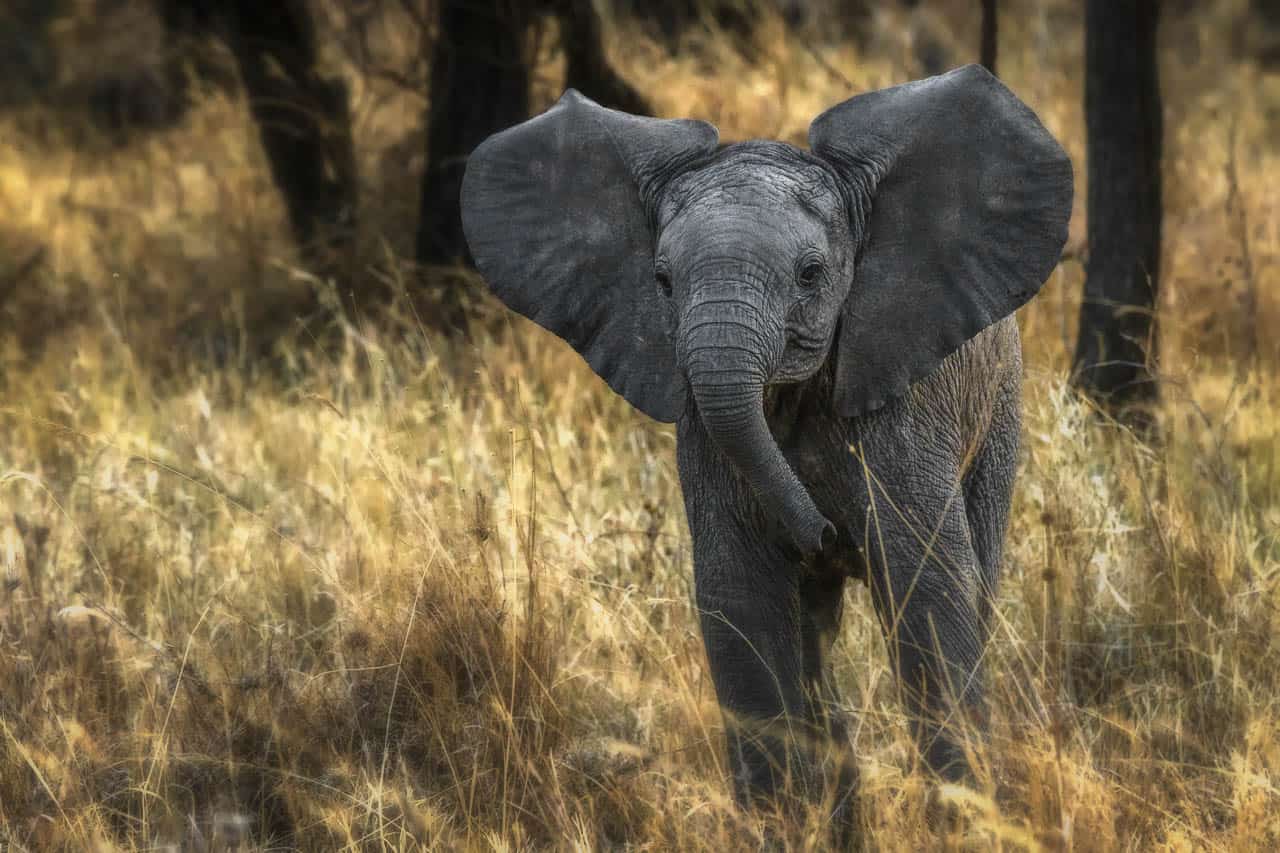Summary
Ever since watching Africa the Serengeti on IMAX in 1994, we’ve had dreams of spying herds of wildebeest migrating across the massive Serengeti plains. Going on Safari in Africa is unlike anywhere else on earth. We’ve seen wildlife around the world, but we are never as excited as when we see a lion in the wild or a herd of elephants crossing the great plains. It can be exciting and overwhelming when planning an African safari. It is a trip of a lifetime and on everyone’s travel bucket list. To help ease the stress, we have compiled some tips to help you prepare for an African safari.
African Safari Tips
We’ve taken safaris in Africa from Kenya to Tanzania, South Africa, and Botswana. We have experienced everything from budget safaris to luxury private game lodges in South Africa and tented camps on the Serengeti. What type of trip you choose is up to you, but no matter how you decide to go, you will love going on safari in Africa!
1. Choose Where You are Going on Safari
Africa is a huge continent, and there are many places to go on safari. The main locations for an African safari are in Kenya, Tanzania, and South Africa. Other amazing places for safaris in Africa include Botswana, Zambia, Uganda, and Zimbabwe.
Safari in Tanzania
Tanzania is famed for the Serengeti National Park, home to all the Big 5 species (Buffalo, Rhino, Elephant, Lion, Leopard) along with notable wildlife like cheetahs, hippos, zebras, and wildebeest. Additionally, other spectacular safari destinations and national parks abound. Lake Manyara is renowned for thousands of flamingos congregating on the saline lake, and you’ll spot plenty of giraffes and monkeys. In Tarangire National Park, you experience another classic safari destination populated with an array of wildlife, while the Ngorongoro Crater offers a unique experience as species thrive within a giant volcanic crater. Gombe Stream National Park is where Jane Goodall’s famous chimpanzees can be seen.
2. Choose Your Budget
When selecting a safari in Africa, determining your budget is crucial. African safaris can fit a range of budgets:
- Budget Safaris start at about $1500, providing basic accommodation, often attracting students and younger travelers.
- Mid-Range Safaris range from $3000 to $6000, covering various safaris and national parks, along with a range of accommodations and game drives.
- Luxury Safaris begin at $10,000, featuring luxury tented camps, private or small group game drives, and cater to your every need.
3. How to Choose a Safari Company
Numerous companies operate safaris in Africa. It’s vital to conduct thorough research to ensure they cater to your demographic and budget while adhering to responsible tourism practices. Utilizing a simple Google search can help you discover suitable options. Remember to check reviews and ask for recommendations. An outstanding safari can truly enhance your experience in the wild.
4. What is Your Travel Style?
Consider your preferred travel experiences. Do you desire luxurious trips involving flying between parks, or do you enjoy immersing yourself in nature through overland travel in tents and lodges? If wildlife viewing is your primary goal, you’ll find plenty of local tour companies ready to take you on game drives.
Accommodations on Safari in Africa
Safari companies offer a variety of accommodations, from basic tented camps to upscale hotels boasting buffet meals and swimming pools. If you’re traveling on a budget, basic tents may suffice, while mid-range safaris typically provide lodges and hotels. Luxury safaris usually include luxurious tented camps designed for a lavish experience.
What to Expect on An African Safari
Upon arrival, you’ll typically be picked up at the airport and transported to your accommodation, where an orientation about your tour will occur. During this session, you’ll have the opportunity to meet fellow travelers. Expect to spend substantial time traveling together in the same vehicle with your guide, which allows for a deeper connection.
Safari Vehicles
Africa has perfected safari vehicles aimed at optimal wildlife viewing. The vehicles vary from open-air jeeps to vans with adjustable roofs. The days can be long, running from sunrise to sunset, so be prepared for extended hours of wildlife exploration.
Communicate with Your Driver
Utilize your driver’s extensive knowledge by asking questions about wildlife and cultural aspects. It’s essential to share your expectations with your driver for a more fulfilling experience. Whether you want to see the Big 5 or have specific interests, transparent communication will greatly enhance your safari journey.
Safari Etiquette
Being respectful and observing rules on safari is crucial. Listen to your guide and keep your hands inside the vehicle when animals are nearby. Always maintain a respectful distance and avoid pressuring your guide to approach wildlife too closely.
Keep Reasonable Expectations
Remember, viewing wild animals is unpredictable. As this is not a zoo, it’s not guaranteed that you will see everything on your wish list. Instead, focus on appreciating the diverse wildlife you encounter during your journey.
What to Pack on an African Safari
Here are some essentials to pack for your safari adventure:
- Binoculars
- Tilly Hat or Safari Hat
- Sunglasses
- Lip Balm
- Sunscreen
- Water Bottle
- Day Pack
- Camera with a Bean Bag for stability
Cultural Experiences
Participating in cultural experiences significantly enriches your safari journey. Immerse yourself in the local culture, enjoy dances and festivals, and support local artisans for a well-rounded experience.
Food on Safari
Dining experiences can vary from buffet dinners at lodges to picnic lunches in the wild. Enjoying meals outdoors can become memorable, especially when you encounter wildlife during meal times.
An African safari creates lasting memories, filled with remarkable experiences and opportunities for adventure.




